第9章 II(3)
While the Constitution thus clothes the President with actual power, it seeks to secure the moral power to the National Assembly. Apart from the circumstance that it is impossible to create a moral power through legislative paragraphs, the Constitution again neutralizes itself in that it causes the President to be chosen by all the Frenchmen through direct suffrage. While the votes of France are splintered to pieces upon the 750 members of the National Assembly they are here, on the contrary, concentrated upon one individual. While each separate Representative represents only this or that party, this or that city, this or that dunghill, or possibly only the necessity of electing some one Seven-hundred-and-fiftieth or other, with whom neither the issue nor the man is closely considered, that one, the President, on the contrary, is the elect of the nation, and the act of his election is the trump card, that, the sovereign people plays out once every four years. The elected National Assembly stands in a metaphysical, but the elected President in a personal, relation to the nation. True enough, the National Assembly presents in its several Representatives the various sides of the national spirit, but, in the President, this spirit is incarnated. As against the National Assembly, the President possesses a sort of divine right, he is by the grace of the people.
Thetis, the sea-goddess, had prophesied to Achilles that he would die in the bloom of youth. The Constitution, which had its weak spot, like Achilles, had also, like Achilles, the presentiment that it would depart by premature death. It was enough for the pure republicans, engaged at the work of framing a constitution, to cast a glance from the misty heights of their ideal republic down upon the profane world in order to realize how the arrogance of the royalists, of the Bonapartists, of the democrats, of the Communists, rose daily, together with their own discredit, and in the same measure as they approached the completion of their legislative work of art, without Thetis having for this purpose to leave the sea and impart the secret to them. They ought to outwit fate by means of constitutional artifice, through Section 111 of the Constitution, according to which every motion to revise the Constitution had to be discussed three successive times between each of which a full month was to elapse and required at least a three-fourths majority, with the additional proviso that not less than 500 members of the National Assembly voted. They thereby only made the impotent attempt, still to exercise as a parliamentary minority, to which in their mind's eye they prophetically saw themselves reduced, a power, that, at this very time, when they still disposed over the parliamentary majority and over all the machinery of government, was daily slipping from their weak hands.
Finally, the Constitution entrusts itself for safe keeping, in a melodramatic paragraph, "to the watchfulness and patriotism of the whole French people, and of each individual Frenchman," after having just before, in another paragraph entrusted the "watchful" and the "patriotic" themselves to the tender, inquisitorial attention of the High Court, instituted by itself.
That was the Constitution of 1848, which on, the 2d of December, 1851, was not overthrown by one head, but tumbled down at the touch of a mere hat; though, true enough, that hat was a three-cornered Napoleon hat.